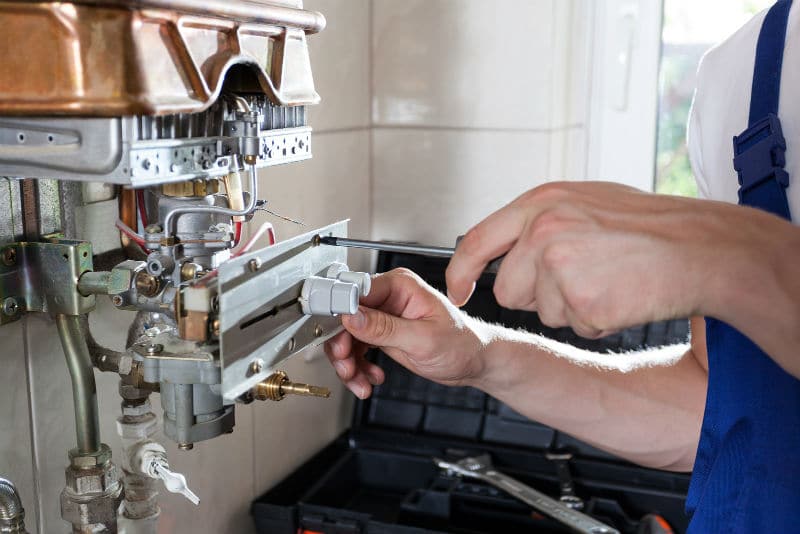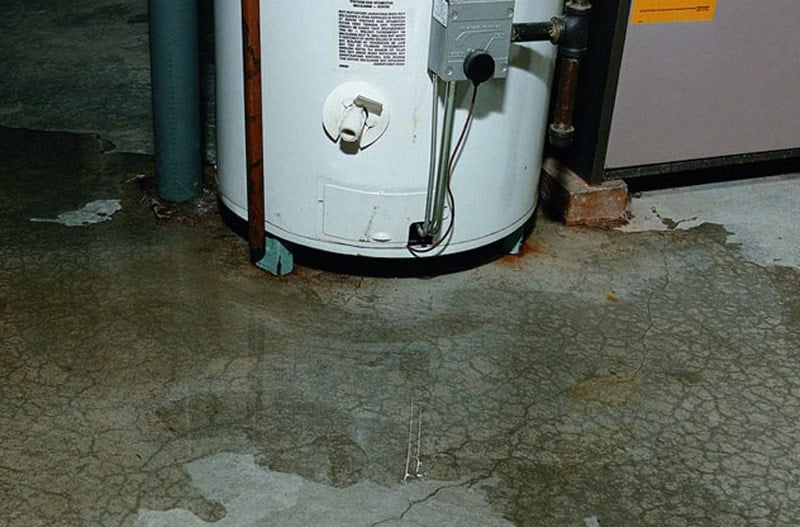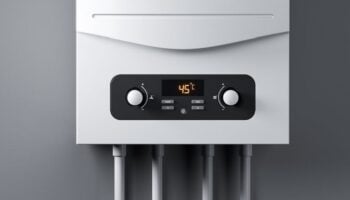We've independently reviewed this article to make sure it's as accurate as we can make it.
To find out more about our article creation and review process, check out our editorial guidelines.
Does your water heater demanding more electricity than half of New York City? If so, that might be what’s causing your circuit breaker to trip.
If your water heater keeps tripping your circuit breaker – check the thermostat, heating element, and electrical panel. It may also be worth inspecting the circuit breaker itself, and if needed the wiring of the water heater. It could also be other appliances on the circuit that are tripping the breaker.
You need your hot water heater to work properly, and it can be frustrating when it is not behaving. Even though you might be under a lot of stress, we have done a significant amount of research to figure out the most common reasons why water heater trip circuit breakers.
Read on, and let’s see if we can figure out why your water heater keeps tripping the circuit breaker.
Materials Needed To Fix an Electric Water Heater
There are a few important materials you will need if you would like to fix your electric water heater. Some of the materials you require include:
- You will need to have access to your electric water heater. This is usually placed in the garage or a utility closet.
- You will also need a flashlight so you can clearly see behind the electric water heater.
- You should have access to the manual so you can figure out where all of the individual parts are located.
- You will probably also need a basic toolbox if you need to take apart some of the water heater.
- You should have plenty of towels with you in case you need to clean up water that spills around the water heater.
- You also need to have a multimeter with you to test the individual components of the water heater.
After you have gathered all of the necessary materials, you can move to your water heater and figure out what is going on. What are a few of the steps you need to follow?

5 Steps to Stop A Water Heater Tripping Your Circuit Breaker
If you would like to figure out why your water heater keeps tripping the circuit breaker, there are several steps you need to follow. These include:
Step 1: Look at the Other Appliances
First, you need to take a look at the circuit breaker and see what other appliances are on the same circuit as your water heater. There should almost never be anything other than the water heater alone on a dedicated two pole circuit. If the water heater is sharing a network with any other appliances, it could be causing an issue.
Step 2: There Might Be a Bad Thermostat
If you think the problem is actually with your water heater, the first thing you need to do is take a look at that thermostat. Water heaters typically have a limit switch that prevents the water from exceeding 180 degrees Fahrenheit. If the water gets too hot, there is a limit switch that trips, stopping the water from getting any hotter. This is important for preventing you from getting burned.
A lot of water heaters have two thermostats and two heating elements. One thermostat goes with each heating element. Usually, the thermostats talk to each other to make sure only one element of the water heater is heating at a time.
If the thermostats are faulty, they could be causing a constant power draw on the heater, which may trip the breaker.
To take a closer look at the thermostat, you will need a multimeter. Use the multimeter to test each individual thermostat to make sure they are working appropriately. If you get markedly different readings for each thermostat, then one of them is probably broken. The thermostat that does not have a lot of resistance or current flowing through it is probably broken. It might have to be replaced.
Step 3: A Bad Heating Element
In addition to a broken thermostat, there may also be a problem with the heating element. Similar to the problem with the thermostats above, you also need to take a look at the individual heating elements.
If your water heater has two separate heating elements, you need to check each of them to see if they are working appropriately. For example, an older heating element may have a problem with the casing. If the casing on the heating element begins to split, then the electrical portion of the water heater is exposed. As a result, the heating element could short-circuit, causing a limit switch to trip. This will trip the circuit breaker, shutting off the water heater.
There is also a situation where the element could stay on when it is not supposed to. As a result, the water will get too hot, causing the limit switch to trip. This could also trip the circuit breaker, shutting off the water heater.
You will need to use your multimeter to test the individual heating elements. If you do not get the right resistance reading, then this is a sign that the heating element is bad and it needs to be replaced.
Step 4: Check for a Water Leak
Of course, you also need to take a look at the water heater to make sure there is no water leaking from the heater. A lot of older water heaters can develop leaks. If that is the case, water may start to pull around to all the electrical elements.
This is why you always need to put safety at the top of your priority list when you are working on your water heater. If there is water pooling around the water heater, it could come into contact with one of the electrical elements. This could cause a serious electrical shock and short the entire system.
If you are noticing a leak in the water heater, you need to turn off the circuit breaker. Make sure you disconnect all power flowing to the water heater. Then, you can take a closer look at the water heater and see what you need to do to fix the issue. You may even need to call a professional to help you with this.

Step 5: Look at the Internal Wiring
Finally, there could also be a problem with the internal wiring of the water heater. If you are not an electrician, then you may want to call an electrician to help you with this step. Before you do anything with the internal wiring of the water heater, you need to shut off the circuit breaker and disconnect power.
When you take a look at the internal wiring, you are looking for any signs of bad wires. There might be a sign of corrosion somewhere in the water heater. Or, you may smell smoke coming from some of the wires. If that is the case, there might be a significant problem with the internal components of the water heater. You need to talk to a professional to see if it is worth it to repair these wires or to have the entire thing replaced.
Solve the Mystery of Your Water Heater
Ultimately, these are just a few of the many reasons why your electric water heater might keep tripping your circuit breaker. It is easy to get frustrated with your electric water heater if it is not behaving as it should, remember that there is also a reason why the circuit breaker keeps tripping.
Under no circumstances should you ever force your circuit breaker to stay open. This could be a serious safety concern. If you go through all of these steps and you still cannot figure out why your electric water heater is not behaving appropriately, you should reach out to a professional who can help you. You might need a plumber or an electrician to figure out what is going on with your electric water heater.
Why Does a Circuit Breaker Trip?
Now, you might be wondering, why is your circuit breaker tripping? Your circuit breaker has been specifically designed to prevent an electric water heater from overloading one or more of your appliances. If the circuit breaker detects there is something unsafe happening in your electrical system, it is going to shut off the power to that part of the house.
You might think you can solve the problem by simply holding the circuit breaker open; however, you should never do this under any circumstances. There is a reason why your circuit breaker is flipping open, and you need to figure out what it is. If you decide to force your circuit breaker closed, you could overload one or more of your appliances, leading to a serious problem. It could even lead to an electrical fire.
For these reasons, you need to gather the right materials to take a closer look at your water heater. That way, you can figure out what is happening and fix it.







